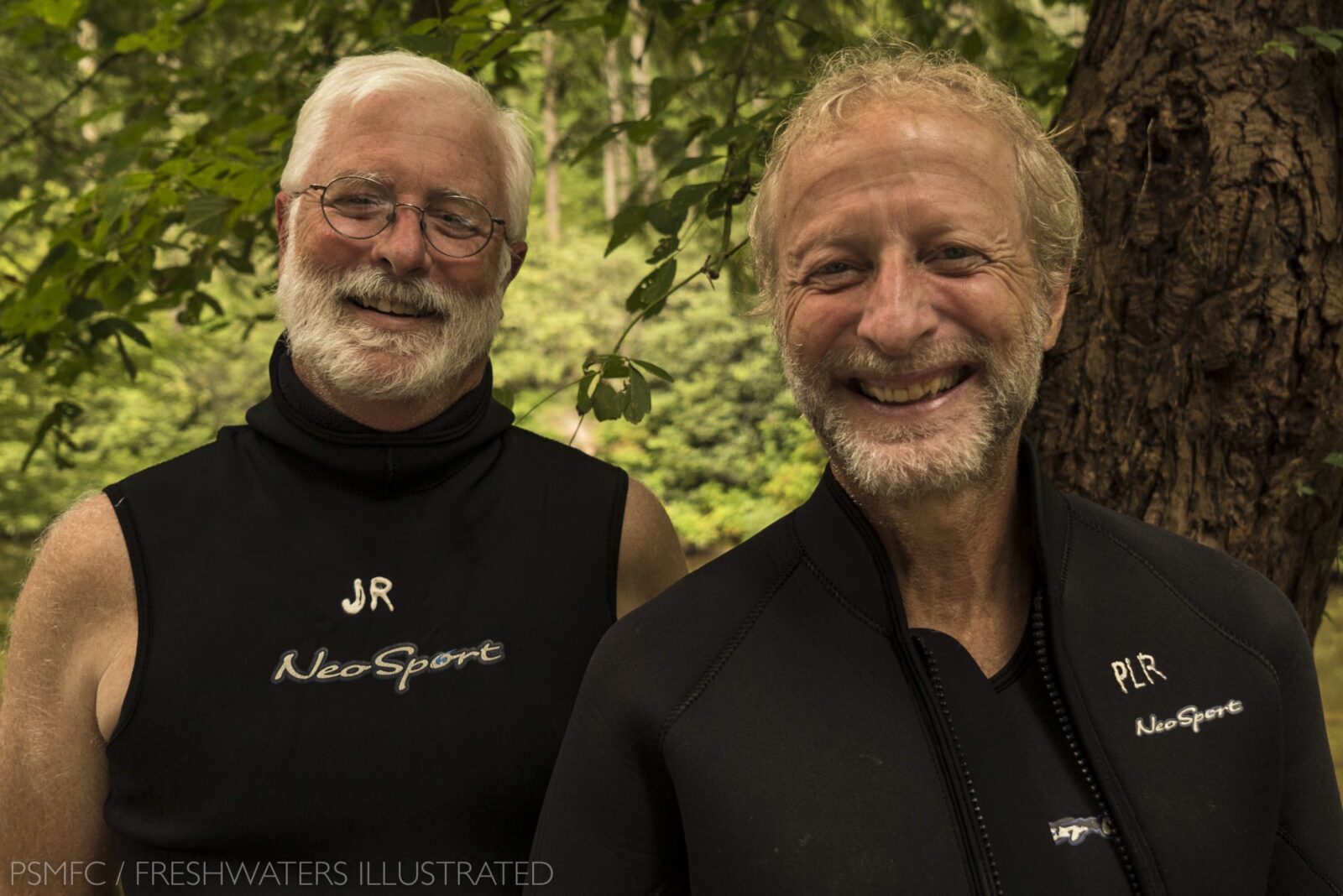When we think of endangered or vulnerable animal populations, most of us still think of the charismatic species that once formed the core of conservation pleas: pandas, tigers, Florida panthers. In aquatic circles, more attention has been paid to the game fish that make up a large part of eco-tourism.
Then there are the native-stream minnows and darters that make up the bulk of the work of Conservation Fisheries Inc. (CFI), a nonprofit based in West Knoxville and devoted to preserving freshwater aquatic diversity.
“They don’t get much love in the world,” co-founder J.R. Shute says of these shy and small non-game fish.
There is the Citico Darter, which was eliminated from Abrams Creek in the 1950s and reintroduced by CFI in 1993. (Another population was introduced into the Tellico River in 2003.) The Yellowfin Madtom, a rare, small catfish that has lost much of its Appalachian habitat to water pollution from industry and agriculture. Federally endangered status has been proposed for the Barrens Topminnow, a speckled fish that inhabits just a few bodies of water in Middle Tennessee. CFI has been propagating them successfully for 30 years, although their lack of habitat makes their longterm prospects unclear.

Lures and yarn mimic native grasses for spawning fish at a propagation tank at Conservation Fisheries. (Photo by Tracy Haun)
Shute and fellow aquatic biologist and co-director Pat Rakes founded CFI in 1986 and incorporated in 1992. Over the decades, CFI has worked with 65 to 70 species of non-game fish, sometimes responsible for the only recovery work that had ever been done for a particular kind of fish.
At their facility off Sutherland Avenue, small offices front a cool industrial space filled with shelves hosting the fish. It’s a collection of pumps, tanks, aquariums, underwater cameras and astronomic lighting.
“It’s a bunch of Rube Goldberg systems,” Shute says. “It’s not pretty, but it works.”
Shute and Rakes met at the University of Tennessee, where they studied under famed biology professor David Etnier. Etnier regularly took students into rivers, streams and reservoirs to observe darters and other freshwater fish. There were grants and funds available for the study and propagation of non-game fish, including from TVA.
“As we graduated, we wanted to continue this work, and no one wanted to take it on,” says Shute. “We were in the right place at the right time.”
Today, they and their half-a-dozen employees stay busy year-round. In prime summer season, they hire part-time help and host interns.
Although they are never short of work, they do come short of the capital needed to expand their educational outreach. CFI accepts individual donations and is also looking for corporate support. Ideally they would like to expand their space to include room for displays and classrooms.
“We’re good at what we do,” Shute says. “What we’re not good at is asking for money.”
They hold two fundraisers a year, including one in Roane County and a family-friendly one at River John’s Island on the Little River near Townsend. There’s live music, and the CFI staff brings along a bunch of child-sized wetsuits and masks.
Introducing kids to life underwater is “the most fun thing we do,” Shute says. They often take school groups and other groups of kids out to snorkel and observe. It’s a revelation to them, especially those who have spent almost no time outdoors.
“You aren’t interested in that which you’ve never seen,” Shute says. “I hope they remember it as they grow older and appreciate these places.”
Loss of habitat is the reason that most of these fish are in trouble, and it’s only by making future generations realize what a treasure they have here that there’s hope for their work, Shute says.
“We are in the center of aquatic diversity in the world here. If it lives in the water and it isn’t tropical, this is the place to be.”
For more information about CFI, visit www.conservationfisheries.org.

